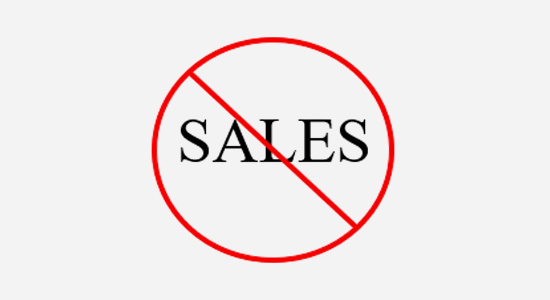
Her existing car was a sporty model and she needed to change to a bigger car, one with a lot of boot space. The salesperson who never really asked any questions about what she was looking for, did not ask why she was looking to change, then went onto try and sell her the upgraded model of her existing car, with a small boot. The car salesperson was only interested in selling her the car that he wanted to sell and not what she was looking for. After hearing the salesman’s presentation, she walked out of the garage and went to another dealership, where she purchased her new car. She needed a bigger boot because of her husbands’ medical condition to hold all his equipment.
The mistake the salesperson made is not new it is a story I hear all the time- trying to sell to their customer, without truly understanding their wants and needs.
So, what is the opposite to this?
For me, it’s all about finding out your client’s problems, solving them in a language that excites them, to create a better future for your client. They should always benefit more than you.
To achieve the above and create a win for both parties, you need to do four things extremely well:
- Build rapport with the right client – trust is crucial to a successful transaction and the best way to build trust, is to build rapport. In the dictionary, the definition of rapport is a close and harmonious relationship in which the people or groups concerned understand each other’s feelings or ideas and communicate well. The word right, is a patient who is genuinely interested in what you are proposing. If you are an NHS dentist, you need to accept that not everyone will be interested in private treatment.
- Ask questions – we are all problem solvers. The more problems we solve, the more successful we will be. In the above situation, if the salesperson would have asked my client the three essential things that her new car needed to have and why they were important, he could have come up with the correct solution. There are many advantages to asking questions, the main one is that you will create new opportunities.
- Solve the problem – we are now ready to offer solutions, options that meet the criteria of your patient, in other words we offer the correct solution to the patient in a language that they understand and benefit from. Patients buy the destination; they do not buy the aeroplane. Many dentists like to talk about the aeroplanes.
- Commitment – if you have built rapport, asked questions, and solved the problem, the next step is to ask the patient how they feel about what you have proposed? Hopefully, they are happy. If they are happy with your proposal and you go through consent, you now have the patient committed. You have a win win. The patients get what they want, and a brighter future and you win, because you get to deliver the dentistry that you love to do.
So, as you can see there is a big difference. What I have discovered over 30 years of being in business, is that no one likes to be sold to, they hate pushy and needy salespeople. If you become truly world class at the above four steps, then your patients will buy from you, as that is really what we all want.

ONE OF OUR TEAM
Two Reds Are Better Than One - Ashley Latter & Chris Barrow